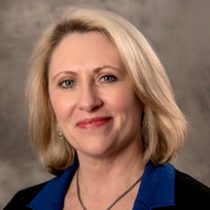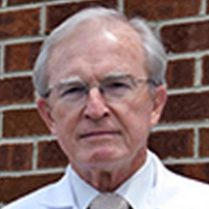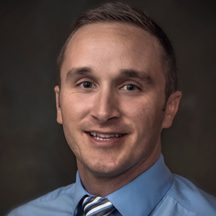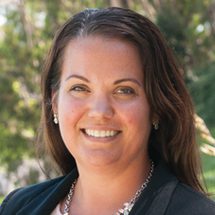JOIN US FOR THE 2ND ANNUAL RURAL RESILIENCE SYMPOSIUM!
August 5, 2022
11 a.m. - 3:10 p.m.
According to the US Census Bureau, approximately 59 million people live in rural or remote areas. Yet, there is a significant health gap in comparison to urban counterparts documenting a host of barriers like poverty, acute social and behavioral health issues, lack of access to specialty care, and inadequate transportation to medical services. Mortality and longevity rates are falling behind in rural America, and the deep impact of COVID continues to test the resilience of rural communities and their residents. The US Department of Health and Human Services outlines that many of these challenges are deeply rooted and finding feasible solutions has been elusive, especially as many of the causes lie beyond clinical settings. However, rural regions are places of great vitality with strong spirits of collaboration. The purpose of this second annual interdisciplinary conference (formerly named “Focusing the Lens on Rural Health”) is to: 1) Highlight key health priorities in rural settings, 2) Share practical strategies with medical and public health professionals that will accelerate the transformation to a more integrated and sustainable rural health system, and 3) Promote partnership among regional stakeholders to revitalize communities. The conference theme underscores the COVID-19 pandemic and related workforce crisis but also silent epidemics like tobacco, hepatitis C, and diabetes. Other sessions will address significant issues in rural areas.
Keynote Speaker

Training the Next Generation of Health Professionals
CAPT (Ret.) Jacqueline Rodrigue, MSW, has nearly 30 years of experience in workforce diversity, cultural competency, stakeholder engagement, quality improvement, and behavioral health. In October 2019, CAPT Rodrigue joined the Office of the Associate Administrator for the Bureau of Health Workforce (BHW) as a Senior Advisor. In this role, she provides strategic direction, coordination, and planning in support of BHW’s 40 programs that aim to recruit, educate, train, and retain a diverse health professions workforce in rural and underserved communities. CAPT Rodrigue coordinates sensitive, high priority cross-cutting agency priorities and emerging issues. She also engages stakeholders from across the department and other federal agencies, state agencies, regional partners, tribal sites, health care organizations, academic institutions, and community-based stakeholders.
Prior to this position, CAPT Rodrigue was the Director of the Division of Health Careers and Financial Support. She provided strategic direction and management oversight to 45 employees and 13-workforce diversity programs with a budget of $216M and a $1.1B Revolving Loan Programs. She advised senior leadership on developments in health professions and opportunities to leverage HHS/HRSA strategic priorities and the broader health workforce agenda nationally. Prior to joining BHW, CAPT Rodrigue served as the Lead with the Office of Quality Improvement in the Bureau of Primary Health Care and redesigned the National Training and Technical Assistance (T/TA) Cooperative Agreements to provide data-driven, cutting-edge, and cost-effective T/TA resources and services across 1,400 health centers and managed the National Advisory Council on Migrant Health, and other special initiatives.
In 2012, CAPT Rodrigue also served as the Deputy Director for the Office of Minority Health at HHS. She led the White House Initiatives on Minority-Serving Institutions, the enhanced National Standards for Culturally and Linguistically Appropriate Services in Health and Health Care, the National Partnership for Action (NPA) to End Health Disparities and co-chaired the Federal Interagency Health Equity Team. Since 1997, CAPT Rodrigue has served in various leadership roles within the Department of Health and Human Services.
Speakers

NC Office of Rural Health Annual Update
Margaret “Maggie” Sauer, MHA, joined DHHS’ Office of Rural Health as director in June 2017, after serving as the President/CEO of the Foundation for Health Leadership and Innovation (FHLI), in Cary, NC, for over five years. Prior to Sauer’s work at FHLI, she served as the Associate Executive Director of the NC Medical Society Foundation, directing programs to strengthen and expand primary care in North Carolina.
Prior to Sauer’s work with non-profit organizations, she served as the Director of Health Promotion and Disease Promotion at Duke University Health Center’s Department of Community and Family Medicine’s Division of Community Health. There she provided administrative management and coordination for 39 large and complex projects serving 67 North Carolina counties. Sauer also served as a Research Assistant Professor in Speech and Hearing Sciences at the University of North Carolina’s School of Medicine and Allied Health Sciences, specializing in assisting in the multidisciplinary evaluation of persons with developmental disabilities and matching them to assistive technology.
While Sauer is a native of Colorado, North Carolina has been her home for 30 years and her family shares an early history in North Carolina. She grew up on the rural eastern plains of Colorado and credits her childhood experiences for her passion to serve and work in rural communities. She received her Master of Health Administration from the University of North Carolina at Chapel Hill and her Master of Science from Colorado State University.

Hepatitis C: A Silent Killer
William Gardner, MD, FIDSA, MACP is a graduate of the University of Cincinnati College of Medicine and completed a fellowship in Infectious Diseases at The Ohio State University. He is a Professor of Internal Medicine at the Northeast Ohio Medical University and is on the teaching faculty at the Southern Regional AHEC Family Medicine Residency program. He has been involved in medical education for over 45 years. His clinical interests include antimicrobial resistance and HIV care.

Tobacco Use: The Persistent Epidemic and the New Vaping Variants
Travis Greer, BS is currently the Region 6 Tobacco Control Manager serving ten counties in the Sandhills Region of North Carolina. At the young age of ten, Travis became a Master Crappie Fisherman and a privilege that came along with that was the right to chew tobacco at will. He went on to receive his bachelor’s degree at the University of North Carolina Wilmington in Community Health Education. In 2019, Travis graduated from the North Carolina Medical Society Emerging Leaders Program. He has worked in public health for ten years at the local and regional working on policy, systems, and environmental change related to chronic disease and tobacco use.

Managing Diabetes During Heat and Storms
Kim Pfotenhauer, DO, FACOPF is a board-certified Osteopathic Family Physician and a fellowship trained Diabetologist. She is currently the Director of Clerkship Curriculum and an Assistant Professor at Michigan State University College of Osteopathic Medicine. She serves on the American Diabetes Association Women's Interprofessional Network Advisory Group and as National Faculty for the NBOME. Speaking regionally and nationally on diabetes, nonalcoholic fatty liver disease and vitamin D, she focuses on empowering primary care physicians to improve patient metabolic health.

Successful Preparedness in the Rural Setting
David Hesselmeyer, MPA began his emergency services tenure in 1997. He holds certifications as a Firefighter, Paramedic, Rescue Technician, Certified Emergency Manager, along with many others. He graduated from East Carolina University in 2004 with a Master of Public Administration. He owns On Target Preparedness, a full-service emergency services consulting firm. OTP provides preparedness coordination services to thirteen health departments in North Carolina and many different types of services to Emergency Management and the private sector. He is also an adjunct professor at Campbell University in their Homeland Security program. He serves with the Buies Creek Fire Department in North Carolina and writes for three national publications and one regional publication.
Disclaimer: By clicking this button, you will be leaving the main conference page.

